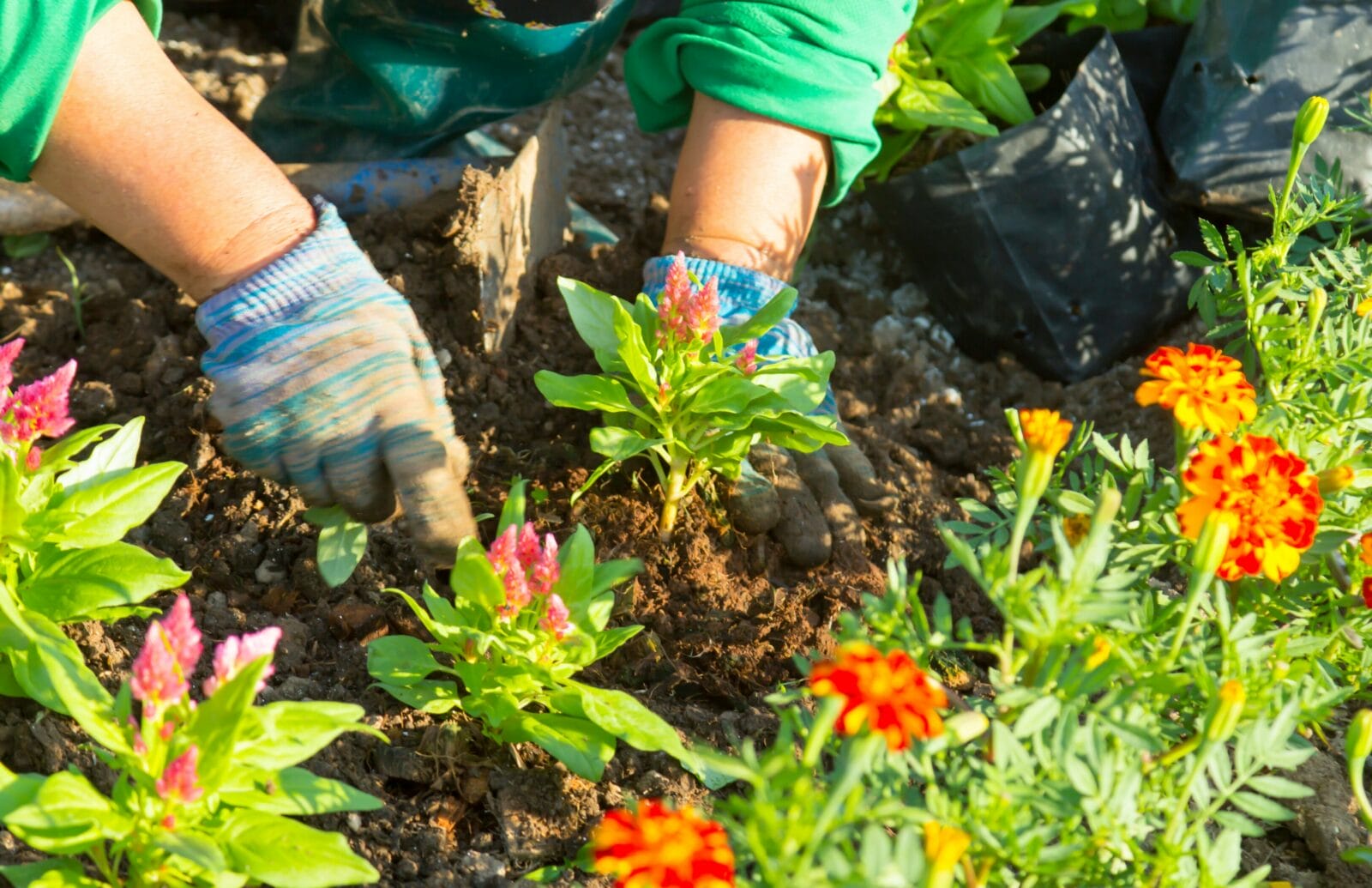Outdoor gardening has many benefits for seniors, including stress relief, a chance to get outside, physical exercise, and improved mental health. You can even use gardening as a way to make friends, interact with others, and find a sense of community. However, gardening is also challenging, and it can be difficult or intimidating to get started. While maintaining a garden is no small task, many summer plants are low-maintenance and easy to care for. Read on for summer gardening tips for seniors and a list of a few of our favorite easy-to-manage summer plants.
Summer Gardening Tips for Seniors
Summer is a great time to start your garden. In most North American climates, plants will grow from about May through September. However, more southern and coastal states may experience longer growing seasons. Either way, most plants do best in the summer. There are a few things to keep in mind when starting a summer garden.
- Location. Where will your garden be located? It could be in your backyard, in pots on your porch or patio, at a community garden plot, or even in a window box.
- Time commitment. How much time do you want to spend in your garden? If you’re limited in time and energy, start small.
- Travel plans. If you’ll be traveling this summer, you’ll need to set up a sprinkler or watering system that is automated on a timer, so your plants don’t die while you’re away.
- Pests. Do you have deer, raccoons, rabbits, or other garden pests? A high fence or barrier may be necessary, or it may be wise to choose pest-resistant plants.
You also might want to make things easier on yourself with some specialized tools. We recommend a kneeling pad (it’s a real knee saver), a hori hori garden knife for weeding, and a japanese weeding sickle. Weeds are every gardener’s enemy, but they’re nearly impossible to prevent. You can dig and plant with a hori hori as well as weed effectively. A weeding sickle prevents you from needing to bend over as much to remove weeds. If you have arthritis, you may want to choose ergonomic tools when possible.
Choosing the Right Summer Garden Plants
Now that you have an idea of what type of garden you’ll be growing, you’ll need to choose the right plants. Take into account these considerations:
- Climate. Not all plants grow in all climates. Make sure you choose plants that will do well where you live. Plants are grouped using a plant hardiness zone system. When buying plants locally, you’ll find ones that grow where you live. If you’re buying seeds or purchasing plants online, pay attention to the zone. Find what zone you’re in here.
- Drought-resistance. If you’re not able to water your plants every day, or your area is dry with extreme heat, choose plants with the ability to withstand drought conditions.
- Disease- and pest-resistance. Many plants are prone to disease and pests, like insects, deer, birds, and more. You’re likely to be more successful if you can find plants that have been selected or bred to resist disease and pests.
- Size. How big is this seed or plant going to get? Pay attention to how much space you have, and how much space this plant will need. If you’re growing plants in containers, make sure to choose smaller specimens that do well with container life.
Low-Maintenance Summer Garden Plants
Now that you have an idea of what kind of garden you want, and what types of plants will work best, it’s time to choose some plants! Here are some low-maintenance summer plants that grow well in most climates. These are considered easy to grow, with resistance to pests and diseases.
- Herbs, like basil, mint, and rosemary, grow well almost everywhere and require little space. Keep in mind that these herbs can be invasive in some regions, so plant in containers (since herbs grow well in small spaces, they are ideal candidates for a container or windowsill garden).
- Tomatoes do well and tend to produce expansively anywhere but the mildest of climates. Cherry tomatoes are especially low-maintenance, since they aren’t as prone to overwatering and becoming cracked or mushy. Keep in mind that most tomatoes do need some support as they get larger, so invest in a tomato cage for your plants.
- Zucchini are known both for their prolific nature and their overall hardiness. They are prone to insect damage in some areas, but they are generally a safe bet for a beginner plant. One important consideration: zucchini plants can get very large, and zucchini squash need to be picked regularly or they will become absolutely enormous.
- Marigolds are easy to grow, bloom all season long, and even repel pests! They’re a fun flower for any beginning gardener. However, they do need full sun to produce the most blooms.
With these easy-to-grow plants and outdoor gardening tips for seniors, you’re sure to have a successful garden this season.




